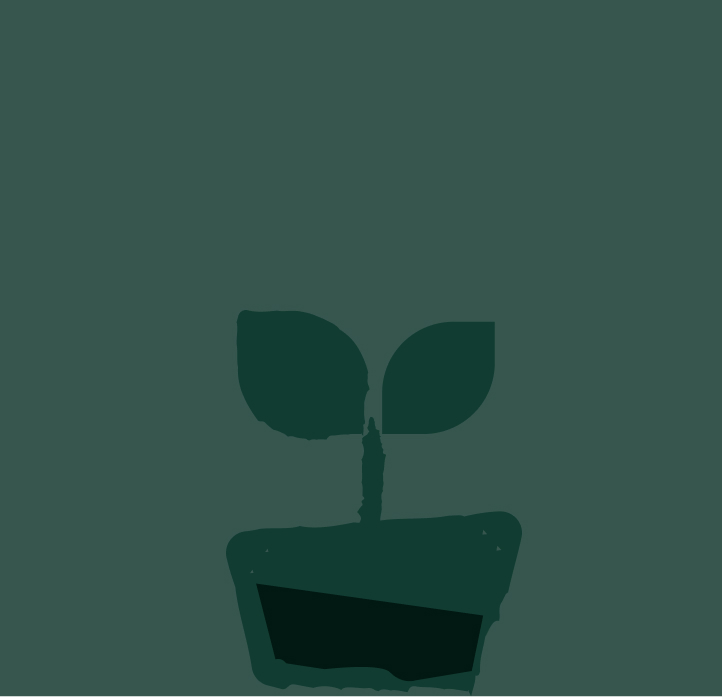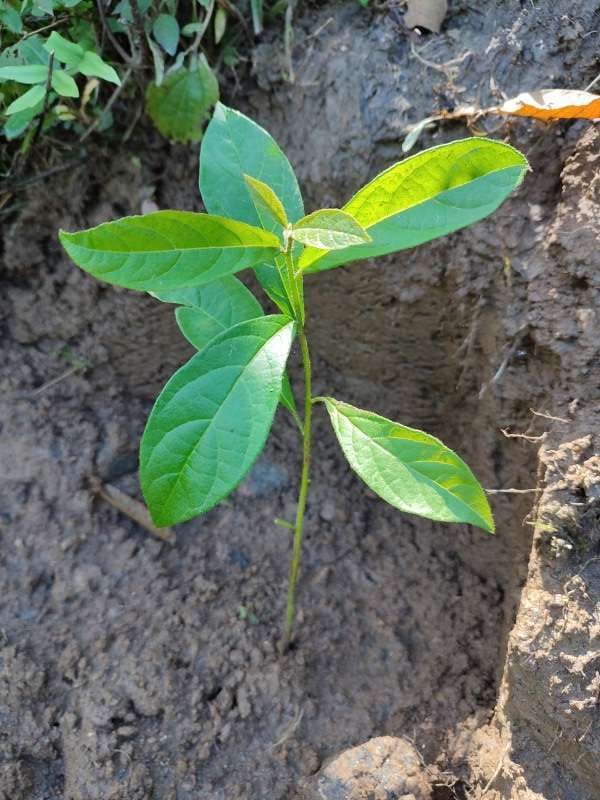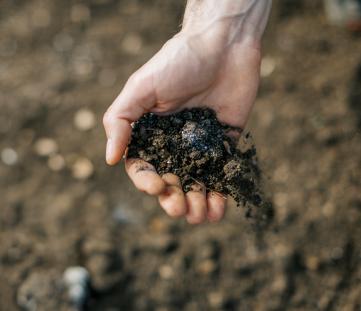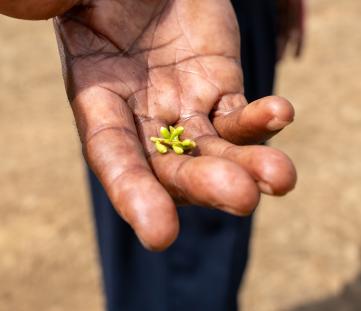ID: DVL-JLYR
ID: DVL-JLYR
Salmwood
Cordia alliodora
Photo
Colombia
20:05 - 19°C
My connections
My ID card
Who am I?
Date of birth
12/14/2023
Name
Salmwood
Tree
Salmwood
Where am I located?
Country
Colombia
Place of birth
Santa Marta
Coordinates
11° 4′ 24.96″ N
74° 4′ 55.22″ W
/-74.08200471,11.07359888,0/500x333@2x?access_token=pk.eyJ1IjoidG9tbWFzb3NwZXJvbmkiLCJhIjoiY2tnOTE3eW12MDJqazMybXNzOWV1YjloOSJ9.wtGsuDU7XIKjcv2cq8CiXw&logo=false&attribution=false)
My Timeline
The important moments in your tree's life.
Seed
It all starts with a tiny seed, nice and warm in the soil.
Nursery
Your seedling is big enough to be welcomed into one of our nurseries, along with many others.
Planted
We’re here! Your tree has reached its new home: it’s been planted by a smallholder, who’ll take care of it for years to come.
Photo
Strike a pose! Now that it’s big enough, here’s a photo of your tree!
My Gallery
Nursery

Planted
/-74.08200471,11.07359888,0/500x333@2x?access_token=pk.eyJ1IjoidG9tbWFzb3NwZXJvbmkiLCJhIjoiY2tnOTE3eW12MDJqazMybXNzOWV1YjloOSJ9.wtGsuDU7XIKjcv2cq8CiXw&logo=false&attribution=false)
74° 4′ 55.22″ W
Photo

Curiosity about me
The important moments in your tree's life.
Let's start with introductions
The salmwood grows up to 35 metres in height and is widespread throughout tropical America, from Mexico to Argentina. Here, its wood is particularly popular, because not only can it be used in a variety of ways, but it also grows back very quickly. Among the indigenous population in the Peruvian Amazon rainforest, the root of the plant is also used medicinally.
Meaning
Ambition
The salmwood often displaces other vegetation. In East Africa, where the species was introduced, this is becoming a problem for the native ecosystem.

How much CO2 I’ll absorb
My estimated CO2 absorption capacity is based on the first 10 years of my life*
Current absorption
- 30 kg
2023
0 kg
2033
-300 kg
* The tree will continue to absorb CO2 even after the tenth year. Therefore this is a prudent estimate.
How I am useful to local communities

Soil
It improves the quality of the soil thanks to the nitrogen fixation process or it reduces soil erosion, thanks to its extended root system.

Medicine
Its leaves, roots, bark and/or fruits are used in traditional medicine.
My benefits
50%
Food Security
The trees will bear fruits, some that will be edible immediately and others that can become edible through processing, ensuring food resources over time.
20%
Economic development
The trees' fruits and the products derived from their transformation can be traded in local networks, offering income opportunities.
40%
CO₂ Absorption
During its life cycle, each tree will offset CO₂. The trees that you plant can offset your emissions.
50%
Environmental protection
The trees are planted in agroforestry systems that favor the virtuous interaction between the different species and their positive impact on the environment and on the land.